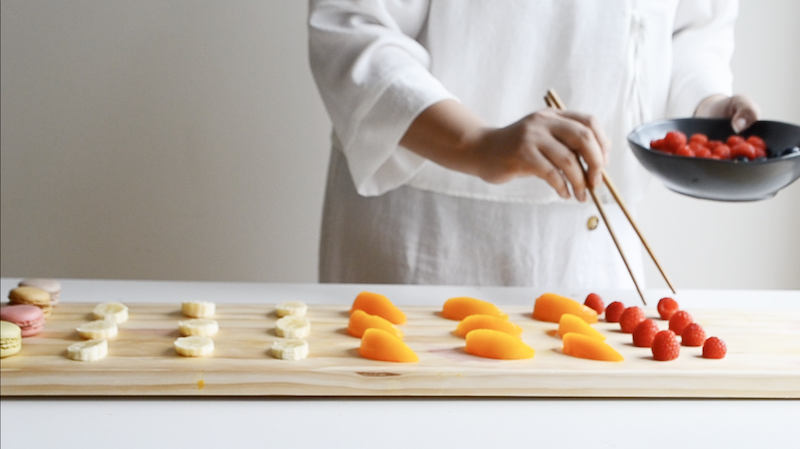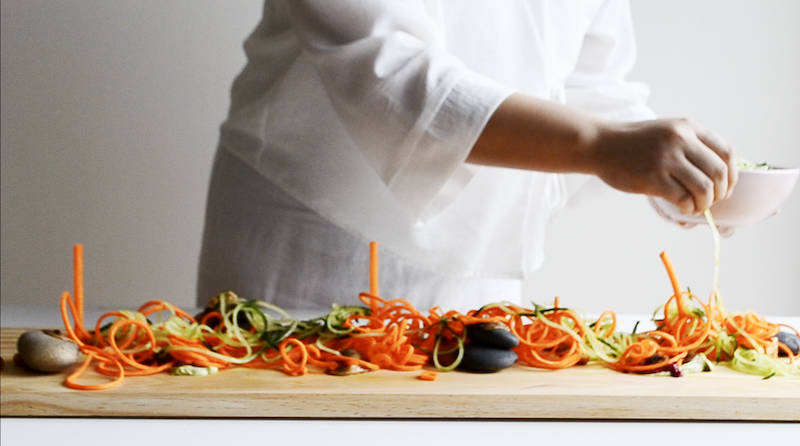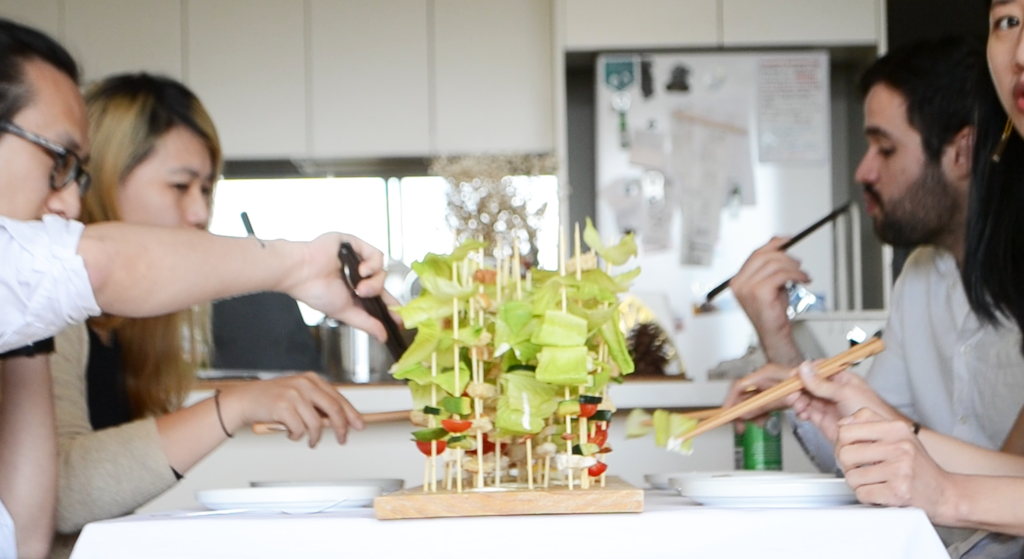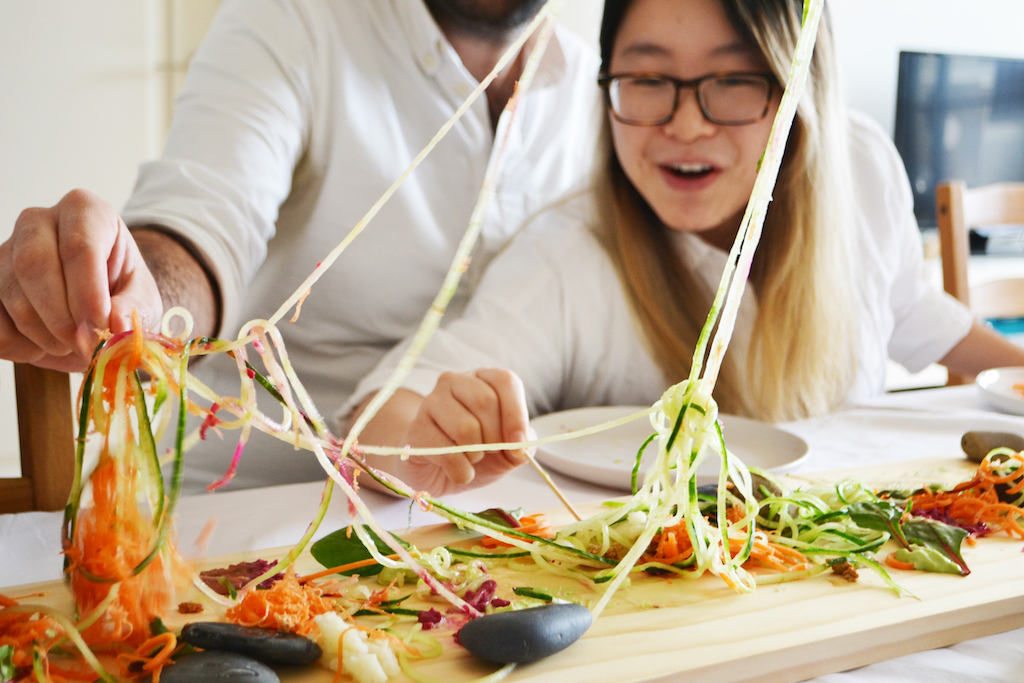
Project Feed
Playful commensality Food Ecology Social Play
Project Feed explores an inventive playful approach to create
awareness for two significant issues: water consumption levels
and distribution channels involved in the food to be eaten. We
present two commensal play experiences that can be played at a
dinner table.
The first play experience is Caesar on a
Skewer, where the ingredients of a Caesar salad are arranged on
a skewer based on their water consumption levels. By arranging
the least water consuming ingredient at the top to the most
water consuming ingredient at the bottom of a skewer, the design
allows participants to reflect and question the inconvenience
caused.
The second play experience is Chopstick Parfait,
where the different food ingredients of the Parfait dessert are
rearranged to mimic the food supply distribution channel from
farm (represented by specific ingredients on a long table) to
plate (in this case individual’s cup). Participants compete to
be the first in distributing all ingredients to every member of
the team and through this act of play they experience the chaos
that occurs during food distribution.
Made with by Yi Ling (Ellie) Tai, Rohit Ashok Khot, & Deepti Aggarwal
Yi Ling (Ellie) Tai, Rohit Ashok Khot, and Deepti
Aggarwal. 2020.
Reconnecting with Food through Dining Play.. In Proceedings of the Annual Symposium on
Computer-Human Interaction in Play (CHI PLAY '20).
Association for Computing Machinery, New York, NY,
USA, 334–348.
(Best Paper Honorable mention Award )
Ideation
Duration: 2 monthsDesign
Duration: 3 monthsPlay testing
Duration: 2 monthsProject Feed in Action.
Grounded.
According to the Future of Urban Consumption Prediction report, food insecurity is one of the prime concerns globally. On the other hand, Lancet report details how our food consumption practices have a heavy impact on human health contributing to increase in obesity, type 2 diabetes, and other auto-immune diseases as well as the environmental impact in terms of pollution, and climatic instability. The link between our food and the climate is undeniable in not just how our food system is put to test in this state of climate change, but also how our food consumption practices have led global food systems to a point of crisis. All these issues, though extremely critical, have not yet caught the eyes of the general population, which this addresses through a playful intervention that happen on a dining plate.
Radical.
While humans need food as a form of nutrients, socialization and growth, we also need some form of play to cater to our emotional wellbeing. The overlap of dining and play bring forward interesting opportunities to explore. We are concerned that sometimes the potential of play is overlooked because of other priorities and mannerism in adulthood. However, it is also a potential call for participants to playfully engage in their mundane activities such as eating and use dining table a potential podium or ‘magic circle’ for play, the one which we normally do not associate for play due to table manners and culture upbringing. This we believe will allow participants to step out of that common routine behavior and step into the in- situ reflection and experiences which could bring a more memorable intent that is otherwise sterile at most times.
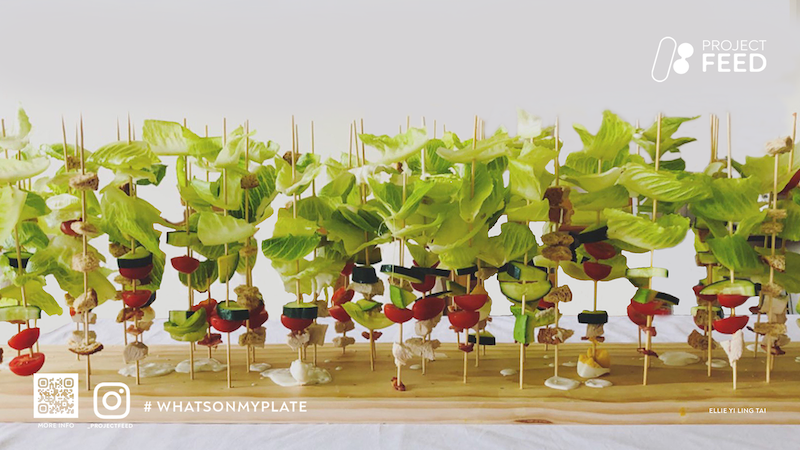
I really like the goal of the study: it's really relevant and really timely. I pretty much agree with the authors that “it’s about time we must rethink our food consumption practices”. Further, I think that the paper is thorough, detailed, and insightful in all of its parts, and that it succeeds in the complex task of bringing together a number of different threads (food systems and sustainability, playful HFI, data physicalization, playful design).
Annoymous Expert Reviewer
ACM CHI PLAY 2020

